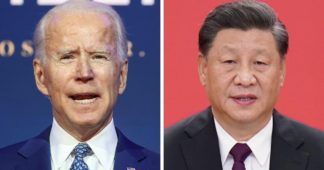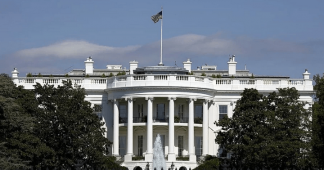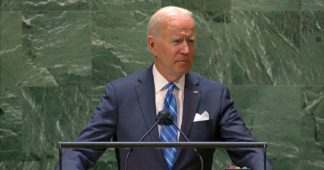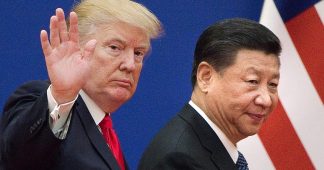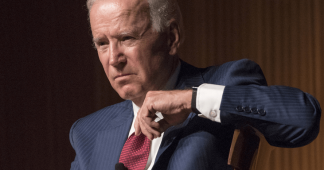But critics say the White House’s new policy document is just a retread of failed liberal internationalism.
Connor Echols
October 12, 2022
In a Wednesday speech at Georgetown University, National Security Adviser Jake Sullivan argued that the world is at an “inflection point” in history following the end of the post-Cold War era.
“This is a decisive decade for shaping the terms of competition, especially with [China],” Sullivan said.
“The stakes could not be higher,” he continued. “The actions now will shape whether this decisive decade is an age of conflict and discord or the beginning of a more prosperous and stable future.”
Sullivan’s comments came shortly after the White House released its National Security Strategy, which has been delayed for months by Russia’s invasion of Ukraine.
The document paints a scary picture of the challenges facing the United States, with a particular focus on the threat posed by authoritarian powers like Russia and China. It also highlights transnational challenges, like climate change and pandemic disease, and notes that Washington will have to work with its adversaries in order to address these threats.
This points to the core tension in the wide-ranging document: it calls for vigorous competition with China and Russia while also arguing that global powers must work together to face global threats. George Beebe, the director of grand strategy at the Quincy Institute, argued that this is a fundamental flaw in the administration’s strategy.
“At no point does the Biden administration seem to reckon with the fundamental incoherence of its strategy,” Beebe said, adding that the document notes the “increasingly divided and zero-sum nature of the global order” without offering practical paths to reduce division.
Sarang Shidore, also of the Quincy Institute, agrees. “While it calls for engaging “constructively” with China on climate—which is a good sentiment that’s likely essential to save the planet—the strategy provides no incentives or realistic pathway for China to come back to the table,” Shidore said. “The administration faces a contradiction between its actions on China-containment and the imperative of climate action.”
In a preemptive response to such critiques, Sullivan argued that the United States, China, and Russia simply have no choice but to work together on issues like climate change.
“We will engage constructively with the PRC wherever we can, not as a favor, not in exchange for our principles, but [because] working together to solve common problems is what the world expects from responsible powers,” Sullivan argued. He later added that competition can help fight climate change by pushing great powers to invest in the green technology that is expected to dominate the world economy in coming years.
The document offers a new framing of the “democracies vs autocracies” framework that Joe Biden has highlighted in the first two years of his presidency. The strategy says the Biden team will work with “any nation that is willing to protect the rules-based order and uphold international law in every region of the world,” meaning that Washington will continue to ally with authoritarian states as long as they share America’s view of the world.
“During the Cold War, we turned a lot of different regions in the world into proxy battlegrounds between the United States and the Soviet Union,” Sullivan said. “A successful approach to dealing with competition with the PRC is […] not dividing the world into rigid blocs and not making our relations dependent on some kind of primacy fight.”
Notably, the strategy takes a veiled shot at Saudi Arabia and the UAE, a pair of authoritarian U.S. allies that have found themselves in Washington’s crosshairs since the Saudi-led OPEC+ decided to drastically cut oil production last week. While the document places the primary blame for the global energy crisis on Russia’s “weaponization of the oil and gas supplies it controls,” it also says these problems have been “exacerbated by OPEC’s management of its own supply.”
When it comes to the broader Middle East, the document argues for a more limited military presence, lamenting that American governments have “too often defaulted to military-centric policies underpinned by an unrealistic faith in force and regime change to deliver sustainable outcomes.” Unlike its recent predecessors, the report only dedicates one page of the lengthy document to fighting terrorism.
We remind our readers that publication of articles on our site does not mean that we agree with what is written. Our policy is to publish anything which we consider of interest, so as to assist our readers in forming their opinions. Sometimes we even publish articles with which we totally disagree, since we believe it is important for our readers to be informed on as wide a spectrum of views as possible.
